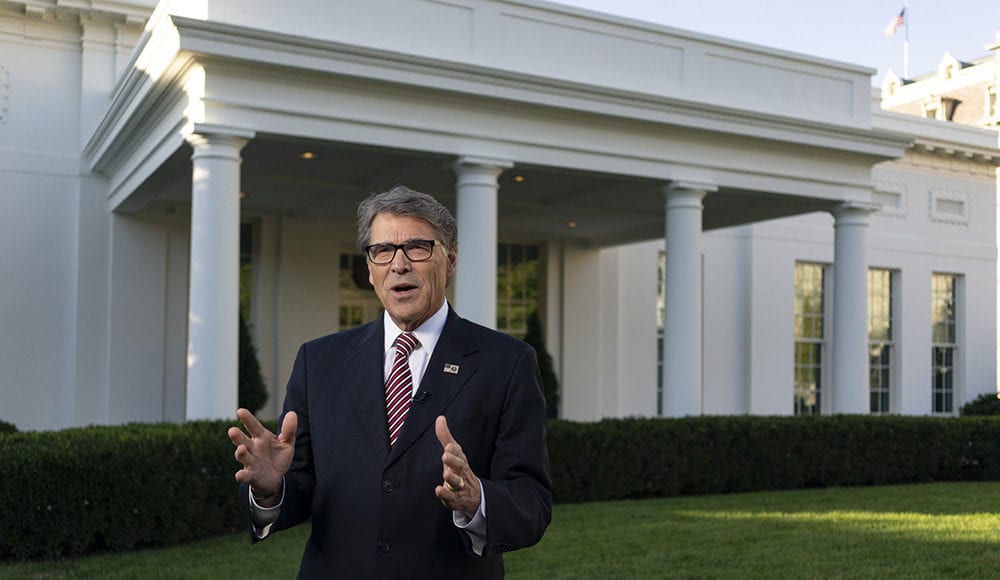(Bloomberg) Global markets are “awash” in crude thanks to the surge in U.S. oil output, and the boom looks set to continue, U.S. Energy Secretary Rick Perry said in a Bloomberg TV interview.
U.S. shale production has turned the world “on its head,” and Goldman Sachs Group Inc. is “off a bit” in a report last week saying that the bonanza is fading, Perry said on Sunday in Dubai.
Oil and natural gas from American shale fields have made the U.S. one of the world’s largest producers and enabled it to become a net energy exporter. Perry will travel in the coming week to Saudi Arabia to discuss possible sales of U.S. liquefied natural gas and Saudi efforts to develop a nuclear power program. Perry held talks in the United Arab Emirates and visited the country’s largest solar-power facility at a site near the U.A.E.’s commercial hub of Dubai.
The U.S. sent 11 LNG shipments to the U.A.E. over the past three years and is seeking to sell more of the fuel there and to Saudi Arabia, Perry said.
The world needs to be prepared for attacks disrupting the global economy, and the U.S., Saudi Arabia and other allies are discussing the safety of oil supply routes, he said. Aerial strikes against Saudi oil facilities on Sept. 14 temporarily knocked out half of the kingdom’s output, and the U.S. is currently doing enough to help Saudi Arabia defend against such attacks in the future, Perry said.
Washington won’t hold a grudge forever against Saudi Arabia over the murder last October of government critic and U.S. columnist Jamal Khashoggi, though there’s not a “massive amount of forgiveness” in Congress for his killing in the Saudi consulate in Istanbul, Perry said.
The energy secretary said he asked U.S. President Donald Trump to call Ukraine to try to sell U.S. LNG there. The approach to Ukraine is important for energy sales and to break that country’s over-reliance on Russian gas, he said.
The U.S. is “making progress” with its Middle East foreign policy, while efforts to impeach Trump won’t be an issue in the U.S. presidential election next year and will go away in six months, Perry said.



